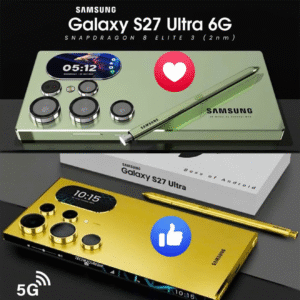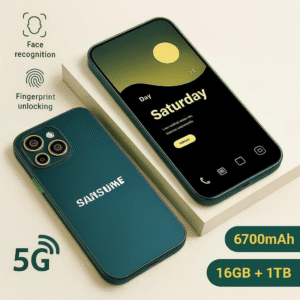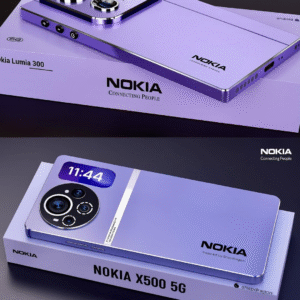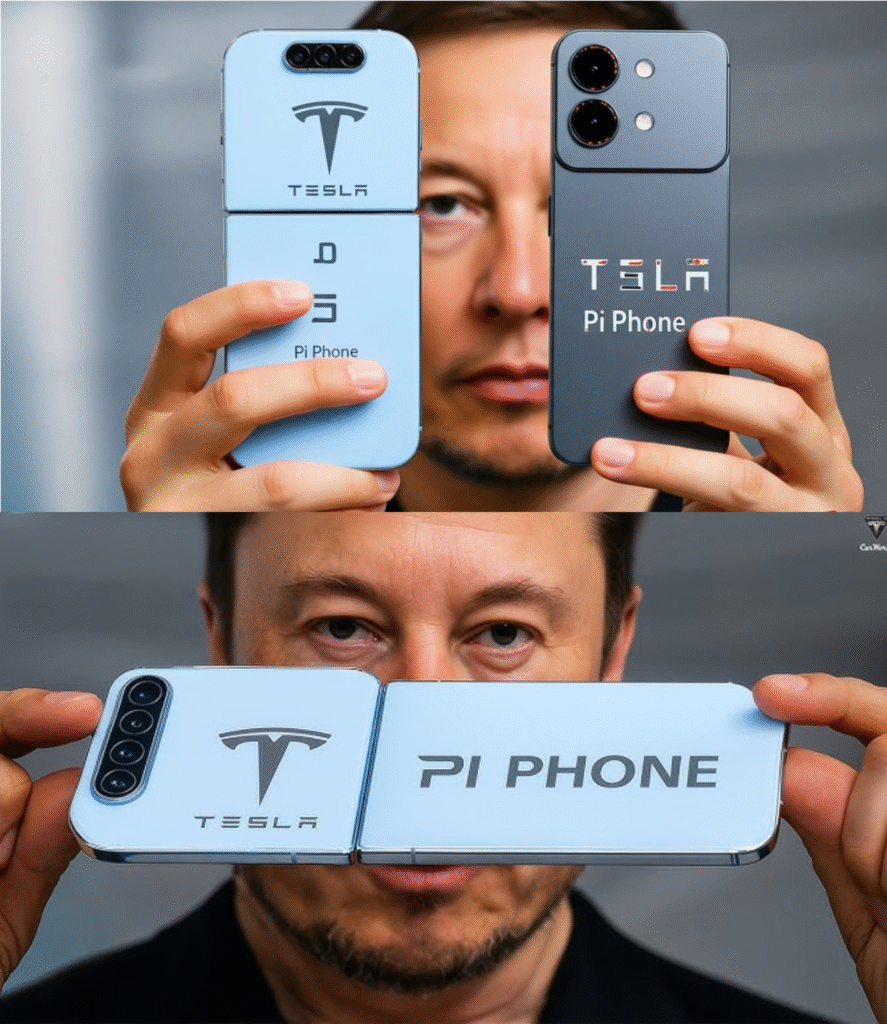
It’s not every day that the tech world collectively drops its jaw. But that’s exactly what happened this week when Elon Musk and Tesla confirmed that the long-rumored Tesla Pi Phone — priced at just $789 — has finally hit the market. And it’s not just another flashy device entering the already crowded smartphone race. No, this one could truly change everything.
Why? Because the Tesla Pi Phone comes with built-in, free Starlink connectivity — meaning you can access the internet anywhere on Earth without a SIM card, carrier contract, or Wi-Fi. From the deserts of Nevada to the peaks of the Himalayas, as long as Starlink satellites can see you, you’re connected. Yes, really.
This announcement doesn’t just challenge Apple, Samsung, and Google. It rewrites the rules of the smartphone industry.
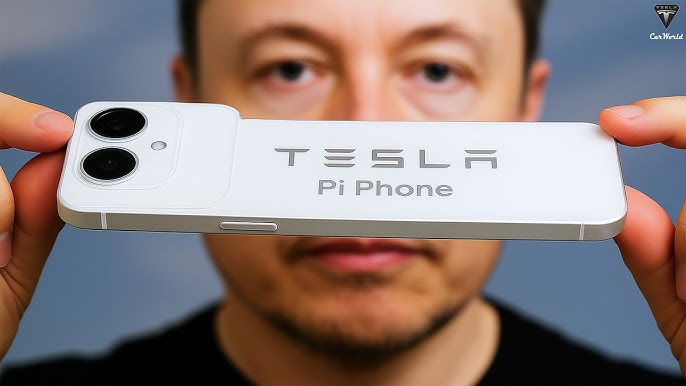
The Dream of Global Connectivity
For years, experts have speculated that Starlink — SpaceX’s satellite internet service — might one day integrate with personal devices. Until now, Starlink required a dish, a subscription, and a stationary setup. But Musk’s newest reveal changes that: the Pi Phone directly taps into Starlink satellites, effectively making it the first truly planet-wide phone.
“No SIM. No roaming charges. No dropped connections because you’re hiking in the middle of nowhere,” Musk teased at the launch event. “If you can see the sky, you can see Starlink. And if you can see Starlink, you’re online.”
This isn’t just a technical upgrade. It’s a seismic shift. Billions of people in rural or underserved areas around the world — places with little to no traditional cell coverage — could suddenly be brought online.
The Price Point That Shocked Everyone
The industry had expected a high-end Tesla phone, but the $789 price tag stunned analysts. While not “cheap” in the everyday sense, it is dramatically lower than many premium devices from Apple or Samsung, which often start well above $1,000.
“Tesla just undercut the market while offering features nobody else has,” said Dan Ives, a Wall Street analyst. “The Pi Phone could pressure legacy smartphone makers to rethink everything — pricing, design, and most importantly, connectivity.”
And it’s not just about Starlink. Tesla promises no monthly fees for global internet access, at least in the phone’s initial launch phase. That alone could be worth hundreds of dollars per year to consumers.
Design That Screams Tesla
Of course, this wouldn’t be a Tesla product without bold design choices. Early reviews describe the Pi Phone as sleek, minimalist, and futuristic, echoing the look of Tesla cars and even the Cybertruck.
The body is made from aerospace-grade titanium alloy, giving it strength without bulk. The back features Tesla’s glowing logo that doubles as a wireless charging indicator. The screen — a 6.7-inch OLED display with adaptive brightness up to 2000 nits — rivals the very best on the market.
Even more intriguing? Tesla claims the device is solar-assisted. While it doesn’t fully charge from sunlight alone, the rear solar strip can provide emergency power, enough to keep you connected for hours when outlets aren’t available.

Specs That Compete With the Best
The Tesla Pi Phone isn’t just a gimmick wrapped around Starlink. Under the hood, it’s a beast:
- Processor: Custom Tesla-designed neural chip optimized for AI and energy efficiency.
- RAM/Storage: Configurations starting at 12GB RAM and 256GB storage.
- Battery: 5,000mAh with fast charging and solar-assisted trickle charging.
- Camera: Quad-lens system with a 108MP primary sensor, low-light optimization, and even an astrophotography mode that takes advantage of Starlink’s sky connectivity.
- Operating System: A modified TeslaOS, built on Android but designed to integrate with Tesla vehicles, solar panels, and Powerwalls.
Built for Tesla Owners
Perhaps the biggest advantage (beyond Starlink) is how seamlessly the Pi Phone integrates with the Tesla ecosystem. From unlocking your car with a swipe, to checking solar output from your roof, to remotely controlling your home energy grid — it’s all built-in.
“The Pi Phone isn’t just a phone,” Musk explained. “It’s the remote control for your Tesla life.”
Car owners will be able to use the phone as a native key fob, monitor real-time vehicle diagnostics, and even activate Tesla’s Smart Summon feature with voice commands.
The Twist Nobody Saw Coming
But Musk, being Musk, didn’t stop there. Just when the crowd thought they had heard it all, he dropped a curveball:
The Tesla Pi Phone will come with Neuralink-ready hardware.
No, it won’t require you to implant anything in your brain (yet). But Musk revealed the phone has a specialized port and wireless protocol designed to one day communicate with Neuralink devices. “We’re preparing for the future,” he said cryptically.
Analysts immediately lit up with speculation. Does this mean the Pi Phone is the first step toward Musk’s dream of merging human intelligence with AI? Or was it just another Musk-ian flourish meant to stir conversation? Either way, it worked.
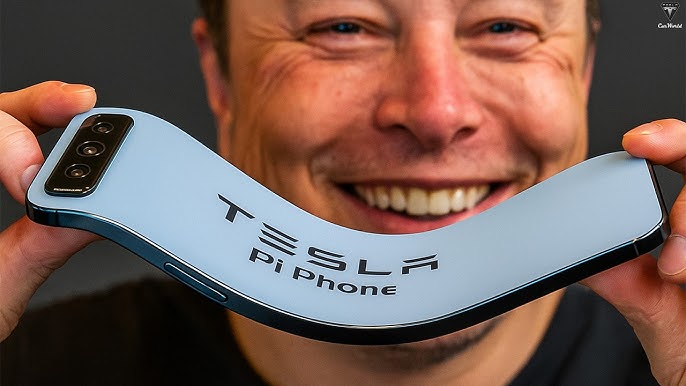
The Disruption Factor
What does this mean for Apple, Samsung, and the rest of Silicon Valley? Panic, according to some insiders.
Apple has long dominated with its walled ecosystem. Samsung thrives on pushing display and camera innovations. But Tesla just leapfrogged them all with something no one else has: truly free, global internet access.
“This is the biggest disruption to the smartphone market since the iPhone,” said tech historian Kara Swisher. “And unlike most upstarts, Musk has the infrastructure — Starlink — to actually pull it off.”
Early Reactions: Excitement and Skepticism
The internet, predictably, exploded. Social media feeds lit up with hashtags like #TeslaPiPhone and #StarlinkInMyPocket. Tesla fans hailed Musk as a visionary. Skeptics, meanwhile, questioned whether Starlink satellites could handle the strain of millions of devices logging on simultaneously.
“Sure, it sounds amazing,” tweeted one critic. “But when 200 million people start streaming Netflix through satellites, let’s see what happens.”
Others raised concerns about privacy, pointing out that a phone integrated with Tesla, Starlink, and potentially Neuralink could give Musk unprecedented control over user data.
What’s Next?
Tesla has announced that the Pi Phone will first roll out in North America and Europe by late 2025, with a global expansion planned for 2026. Pre-orders reportedly sold out in under 12 minutes, crashing Tesla’s website.
If the Pi Phone delivers on even half of its promises, it could redefine not just the smartphone industry, but how humanity connects to the internet itself.
Conclusion: The Dawn of a New Era
At $789, the Tesla Pi Phone is more than a gadget. It’s a symbol of Musk’s relentless pursuit of disruption. By combining affordability, design, Tesla integration, and free Starlink access, this device has the potential to change lives — from Wall Street executives to villagers in remote corners of the globe.
For the first time, the idea of being truly “offline” may become obsolete. As Musk himself summed it up at the launch:
“The Pi Phone is not about competing with Apple or Samsung. It’s about making the internet as universal as air and water. It belongs to everyone.”
And just like that, the smartphone game has officially changed forever.
